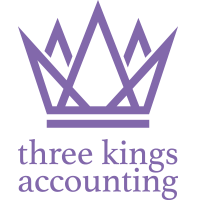This factsheet focuses on the current tax position of business motoring, a core consideration of many businesses. The aim is to provide a clear explanation of the tax deductions available on different types of vehicle expenditure in a variety of business scenarios.
Methods of acquisition
Motoring costs, like other costs incurred which are wholly and exclusively for the purposes of the trade, are tax deductible but the timing of any relief varies considerably according to the type of expenditure. In particular, there is a fundamental distinction between capital costs and ongoing running costs.
Purchase of vehicles
Where vehicles are purchased outright, the accounting treatment is to capitalise the asset and to write off the cost over the useful business life as a deduction against profits. This is known as depreciation.
The same treatment applies to vehicles financed through hire purchase with the equivalent of the cash price being treated as a capital purchase at the start with the addition of a deduction from profit for the finance charge as it arises. However, the tax relief position depends primarily on the type of vehicle, and the date of expenditure.
A tax distinction is made for all businesses between a normal car and other forms of commercial vehicles including vans, lorries and some specialist forms of car such as a driving school car or taxi.
Tax relief on purchases
Vehicles which are not classed as cars are eligible for the Annual Investment Allowance (AIA) for expenditure incurred. The AIA provides a 100% deduction for the cost of plant and machinery purchased by a business up to an annual limit. The amount of AIA available varies depending on the period of the accounts. The amount of AIA has been set at £1,000,000 from 1 January 2019 for a three year period and will revert to £200,000 from 1 January 2022. Complex calculations may apply to accounting periods which straddle this date.
Where purchases exceed the AIA, a writing down allowance (WDA) is due on any excess in the same period. The WDA available is currently at a rate of 18% or 6% depending on the asset. Cars are not eligible for the AIA, so will only benefit from WDA.
Capital allowance boost for low–carbon transport
A 100% First Year Allowance (FYA) is currently available for businesses purchasing zero-emission goods vehicles, gas refuelling equipment and electric charge-point equipment.
Writing Down Allowances (WDA)
The WDA rates are 18% on the main rate pool and 6% which applies to many higher emission cars which are part of the special rate pool.
Complex cars!
The green car
Cars generally only attract the WDA but there is one exception to this and that is where a business purchases a new car with zero emissions – a so called ‘green’ car. Such purchases attract a 100% allowance to encourage businesses to purchase cars which are more environmentally friendly. A 100% write off is only available where the CO2 emissions of the car are 0 g/km (no more than 50g/km prior to April 2021) and the car is purchased new. The cost of the car is irrelevant and the allowances are available to all types of business.
When did you buy?
The allowances due are determined by whether the car was purchased. The figures below apply for purchases from April 2021.
The annual allowance is dependent on the CO2 emissions of the car.
Cars with emissions between 1 – 50 g/km inclusive will qualify for main rate WDA.
Cars with emissions in excess of 50 g/km are placed in the special rate pool and will qualify for an annual WDA of 6%.
The 100% first year allowance (FYA) will be available on new zero emission cars purchased (not leased) by a business.
If a used car is purchased with CO2 emissions of 0g/km, this will be placed in the main pool and will receive an annual allowance of 18%.
Non-business cars
Any cars used by the self employed where there is part non–business use will still be separately allocated to a single asset pool. The annual allowance will initially be based on the CO2 emissions and then the available allowance will be restricted for the private use element.
Example
A company purchases two cars for £20,000 in its 12 month accounting period to 31 March 2022. The dates of purchase and CO2 emissions are as follows:
| White car | Blue car |
| 1 May 2021 | 1 May 2021 |
| 45 | 80 |
Allowances in the year to 31 March 2022 relating to these purchases will be:
| White car (main pool as emissions up to 50 g/km) | Blue car (special rate pool as emissions more than 50 g/km) |
| £20,000 @ 18% = £3,600 | £20,000 @ 6% = £1,200 |
In the following year to 31 March 2023 the allowances will be:
| White car | Blue car |
| £16,400 @ 18% = £2,952 | £18,800 @ 6% = £1,128 |
Disposals
Where there is a disposal of plant and machinery from the main or special rate pools any balance of expenditure, after taking into account sale proceeds, continues to attract the annual allowance.
Where there is a disposal of a car held in a single asset pool, the disposal proceeds are deducted from the balance of the pool and a balancing allowance or a balancing charge is calculated to clear the balance on the pool.
This applies to any cars used by the self employed with part non business use whenever purchased.
What if vehicles are leased?
The first fact to establish with a leased vehicle is whether the lease is really a rental agreement or whether it is a type of purchase agreement, usually referred to as a finance lease. This is because there is a distinction between the accounting and tax treatment of different types of leases.
Tax treatment of rental type operating leases (contract hire)
The lease payments on operating leases are treated like rent and are deductible against profits. However where the lease relates to a car there may be a portion disallowed for tax.
From April 2021 a disallowance of 15% will apply for cars with CO2 emissions which exceed 50 g/km.
ExampleContract signed 1 July 2021 by a company: The car has CO2 emissions of 86g/km and a £6,000 annual lease charge. The disallowed portion would be £900 (15%) so £5,100 would be tax deductible. |
Tax treatment of finance leased assets
These will generally be included in your accounts as fixed assets and depreciated over the useful business life but as these vehicles do not qualify as a purchase at the outset, the expenditure does not qualify for capital allowances unless classified as a long funded lease. Tax relief is generally obtained instead by allowing the accounting depreciation and any interest/finance charges in the profit and loss account – a little unusual but a simple solution!
Private use of business vehicles
The private use of a business vehicle has tax implications for either the business or the individual depending on the type of business and vehicle.
Sole traders and partners
Where you are in business on your own account and use a vehicle owned by the business – irrespective of whether it is a car or van – the business will only be able to claim the business portion of any allowances. This applies to capital allowances, rental and lease costs, and other running costs such as servicing, fuel etc.
Providing vehicles to employees
Where vehicles are provided to employees irrespective of the form of business structure – sole trader/partnership/company – a taxable benefit generally arises for private use. A tax charge will also apply where private fuel is provided for use in an employer provided vehicle. For the employer such taxable benefits attract 13.8% Class 1A National Insurance.
Vans
No charge applies where employees have the use of a van and a restricted private use condition is met. For details on what this means please contact us. Where the condition is not met there is a flat rate charge per annum. These benefits are £3,500 for the unrestricted private use plus an additional £669 for private fuel in 2020/21 (£3,490 and £666 for 2020/21).
How we can help
If you would like further details on any matter contained in this factsheet please contact us.


